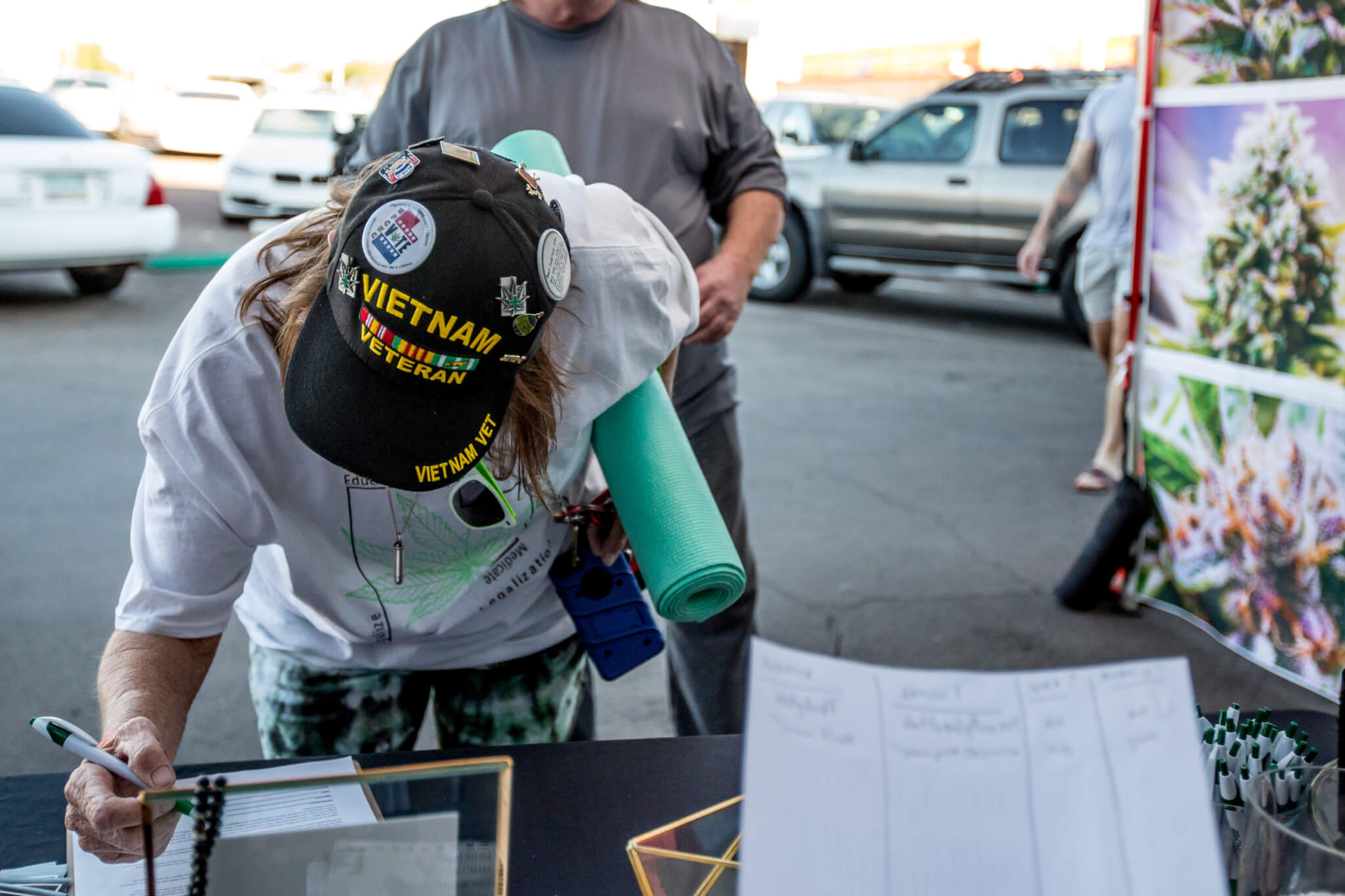
In honor of this year’s Veteran’s Day, our team sat down with Stephen Vega – a man on the front lines of the medicinal edibles industry. Vega is in it for more than delivering tasty treats though – he is working to enhance the lives of returning service members through his potent edibles that blend culinary mastery, nutritional knowledge, and a desire to serve. Read on for how Vega has filled a unique niche in the local cannabis industry through his compassionate advocacy for veterans.
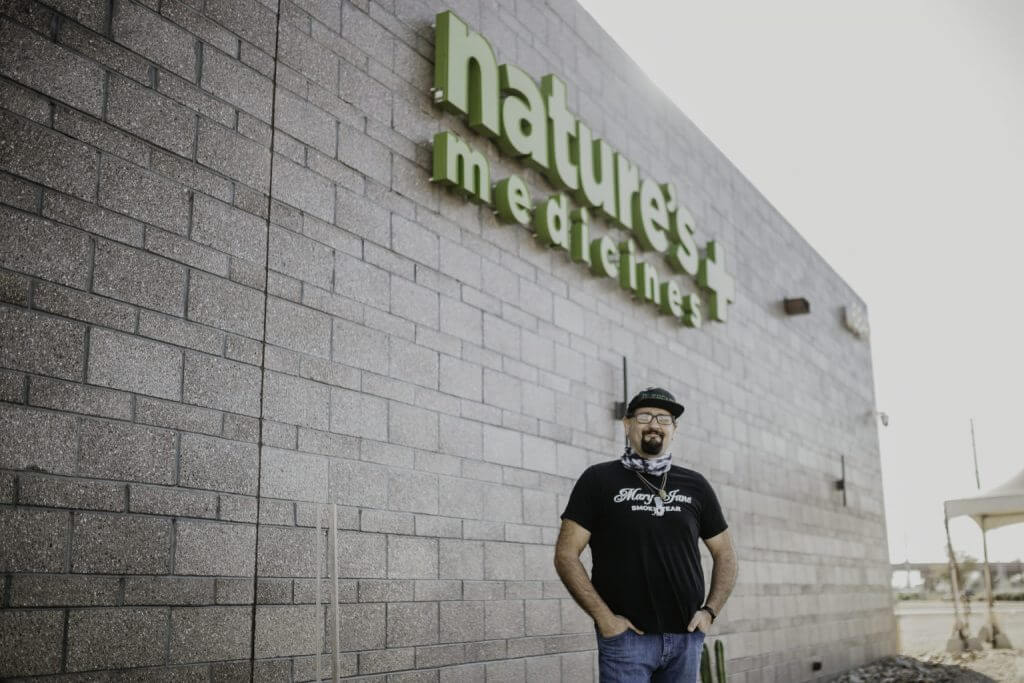
Trained in culinary arts and hospitality management by Phoenix College, instructed in entrepreneurialism by Grand Canyon University, taught by Disney’s Culinary Internship Program, & certified by Disney College, Stephen Vega isn’t just making marijuana brownies in his kitchen as D’Treatz co-owner — he’s helping people live better lives through infused foods. He’s particularly proud of his work with veterans, though he knows it isn’t enough.
While at Phoenix College, Vega was president of the Phoenix College Veterans Association, helping veterans transition from active duty, the reserves, or the National Guard into college life. The veteran-owned D’Treatz allowed Vega to go further, acting as an educational resource about how beneficial CBD can be with neuropathy, PTSD, and other ailments often suffered by those who have served. Vega estimates as many as 35% of veterans are experiencing homelessness right now — he’s working with local companies to provide nutrient-rich, CBD-infused products along with a food truck offering free healthy food.
Indeed, earlier estimates suggest that 12% of all people experiencing homelessness are vets, who often struggle with mental health issues, depression, traumatic brain injury, and economic hardship at a higher rate than the general population. Returning vets report feeling overlooked and cite difficulties reintegrating into their families and communities after their service. The current economic climate has almost certainly exacerbated these challenges, and likely put more strain on a community that has a suicide rate 1.5 times higher than non-vets. For female vets, it’s 2.2 times higher.
“We just want to make sure that our veterans are being recognized, knowing that they’re not forgotten [about] due to what’s going on in our country,” Vega said.
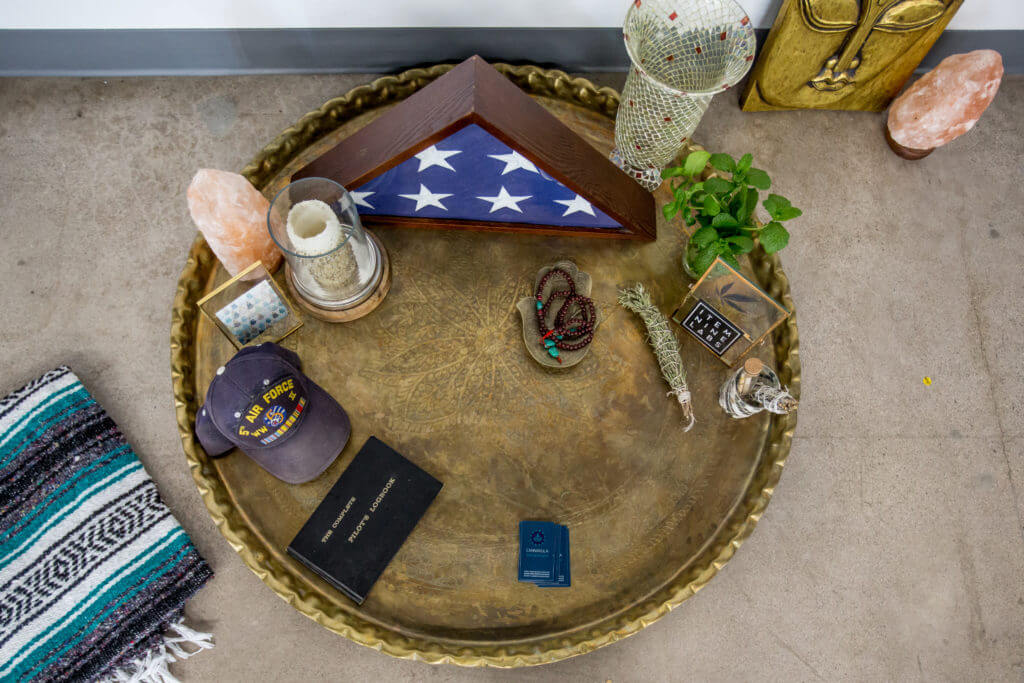
While not all of Vega’s options would be considered health food, he goes out of his way to create products that everyone’s body can fully enjoy. “[When we] try to ingest an edible that is made with polyunsaturated fats, dyes, preservatives, and processed sugars, this stops our viability and absorption system from metabolizing the actual medicine that we need,” Vega, who notes that healing can be aided by priming the body to properly absorb the nutrients we feed it, said. “You can still make something delicious and tasty but using refined resources that are more natural and organic to processes in the body. Using sugars that do not raise the hypoglycemic and A1C level in our body is a very big step in the evolution of edibles.”
Vega thinks there’s a lot more the cannabis industry could do to help veterans, patients, and new users alike: education. He’s a big advocate for requiring Dispensary Agents to have thorough training, as he’s personally felt uncomfortable having product pushed on him instead of being educated about medicine. “Everyone’s worried about testing,” Vega said, who also supports full-panel testing. “The required test is not going to be any good if we don’t have educated people behind it stand firm and know what the plant is about.”
His latest project, a company named Odds and Ends Full Spectrum Edibles, offer plant-based foods with cannabis plant material infused to ensure the endocannabinoid system (ECS) is inundated. Rich with cannabinoids but often low in THC, these types of options are particularly helpful when dealing with stress disorders like PTSD because the digestive system can fully process the medicine over time – but that depends highly on what that edible is made from. “When you’re taking a 400mg edible and you’re thinking that you’re going to get all 400 milligrams, if that edible product is made mostly of processed stuff…you only get maybe 15 to 20% absorption. And that’s the problem that we have in our industry,” Vega said. “It’s all about science. It’s the physiology of the body and a little bit of cooking too. If you can understand the body and how the digestive system works and how the ECS works in our body, you can really formulate anything around that to really make it beneficial for that person.”
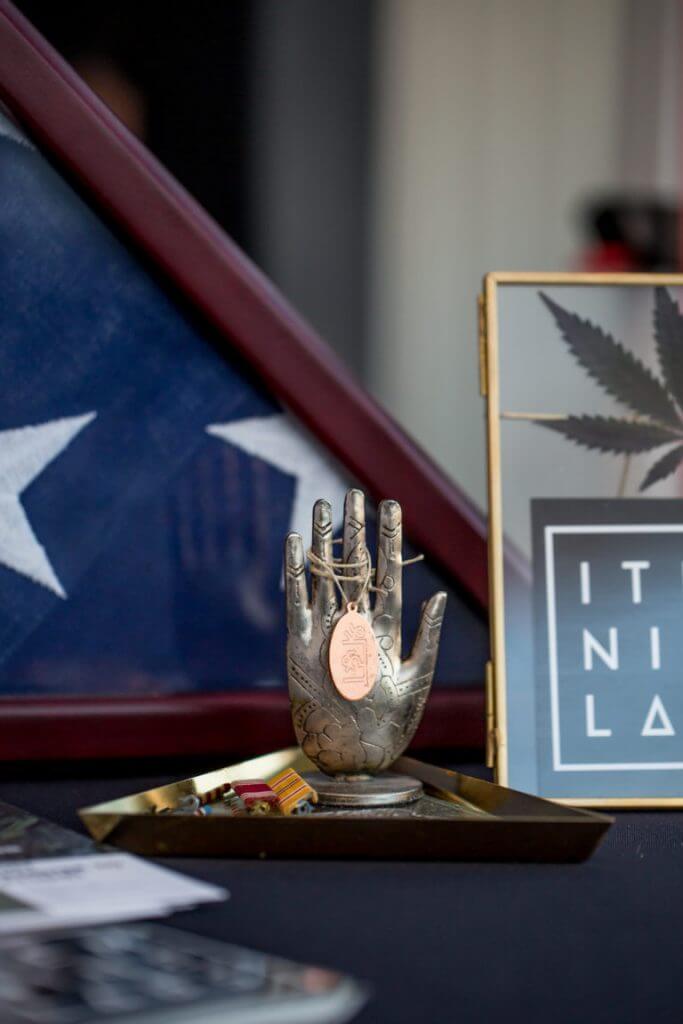
Thanks for taking the time to sit down with us Stephen! Every single individual that takes a moment to recognize our service member’s unique contributions and challenges helps bring healing and wellness to these vital members of our community.
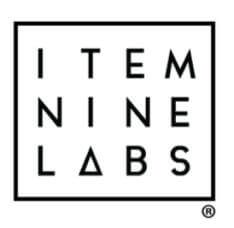
Recent Comments